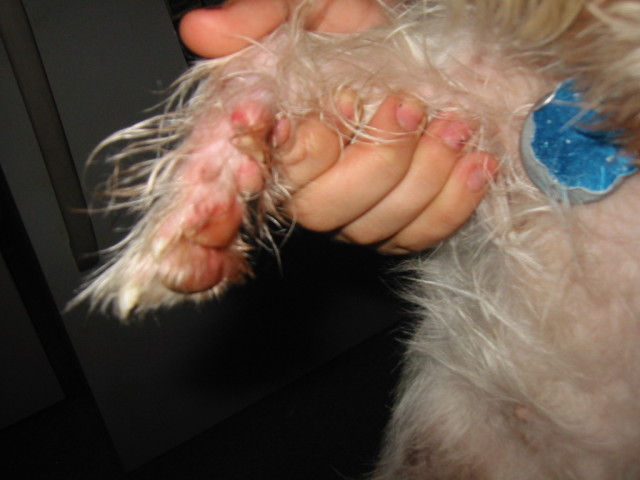QuestionThree months ago I adopted a 5 year old dog that had never been house broken, leash trained or walked regularly. He was neutered just prior to my adopting him.
When he defecated and/or urinated in the house his previous owner would yell at him and shut him up in his crate. At times he would urinate through the bars of his crate.
I have been successful in getting him leash trained and partially house broken. He also no longer urinates through his crate.
However, he still sometimes goes in the house no matter how frequently I take him out and, at times, right after I take him out. He also goes within 3 or 4 feet of his eating area. The problem is more with defecation than urination.
I have tried confining him in his crate after he goes in the house but this has not been successful.
I also have another neutered male dog that he dominates.
Can you give me any advice? He is a great dog aside from this.
AnswerUnfortunately, since your guy has been allowed to pretty much do as he pleased for five years, I don't know that you will be able to be much more successful than you already have been.... and it sounds like you have done a terrific job with this dog in only three months!
My only suggestion would be to not use the crate as punishment when he has pottied inappropriately, as that will not be of any help at all. Treat him like a puppy in his housebreaking, and crate him when you cannot watch him, and let him outside frequently. Be sure you feed him in his crate.
Since he is a bit more dominant, you might want to try "Nothing in Life is Free" on him... http://k9deb.com/nilif.htm and I would suggest getting him into ongoing obedience classes once he has settled in a bit with your family. If the leg-lifting part continues, you might want to consider getting a Belly Band for him: http://www.showpaps.com/bellybands.html
Of course, make sure that he is parasite-free (take in a stool sample) and has no bladder infections that could be contributing to this behavior. Sometimes one makes assumptions about certain behaviors only to discover that they are more health issues rather than behavioral.

 Mastitis
QuestionQUESTION: Good morning Karen.
My Pomeranian is
Mastitis
QuestionQUESTION: Good morning Karen.
My Pomeranian is
 2nd Dog
Question
Winston
Hi, I have a beagle/bassest hou
2nd Dog
Question
Winston
Hi, I have a beagle/bassest hou
 re: dog breed
Question
Dog pic question about
Hi Patti,
I took in a
re: dog breed
Question
Dog pic question about
Hi Patti,
I took in a
 Sudden aggression towards mother dog
QuestionQUESTION: I have four dogs, Male German shepard
Sudden aggression towards mother dog
QuestionQUESTION: I have four dogs, Male German shepard
 dew claw bleeding
Question
tashas paw
Hi I have a 2yr old female shutzu/M
dew claw bleeding
Question
tashas paw
Hi I have a 2yr old female shutzu/M